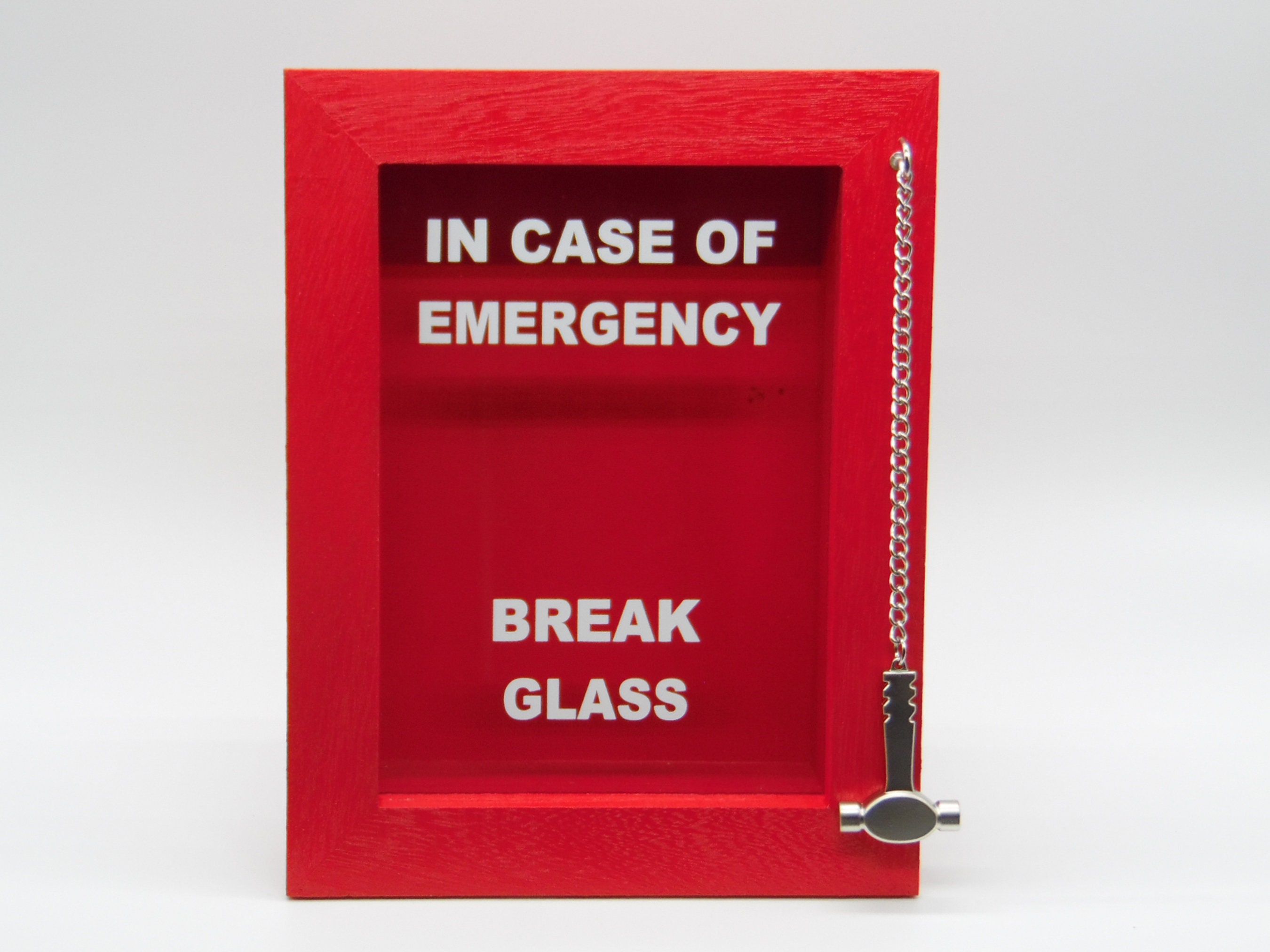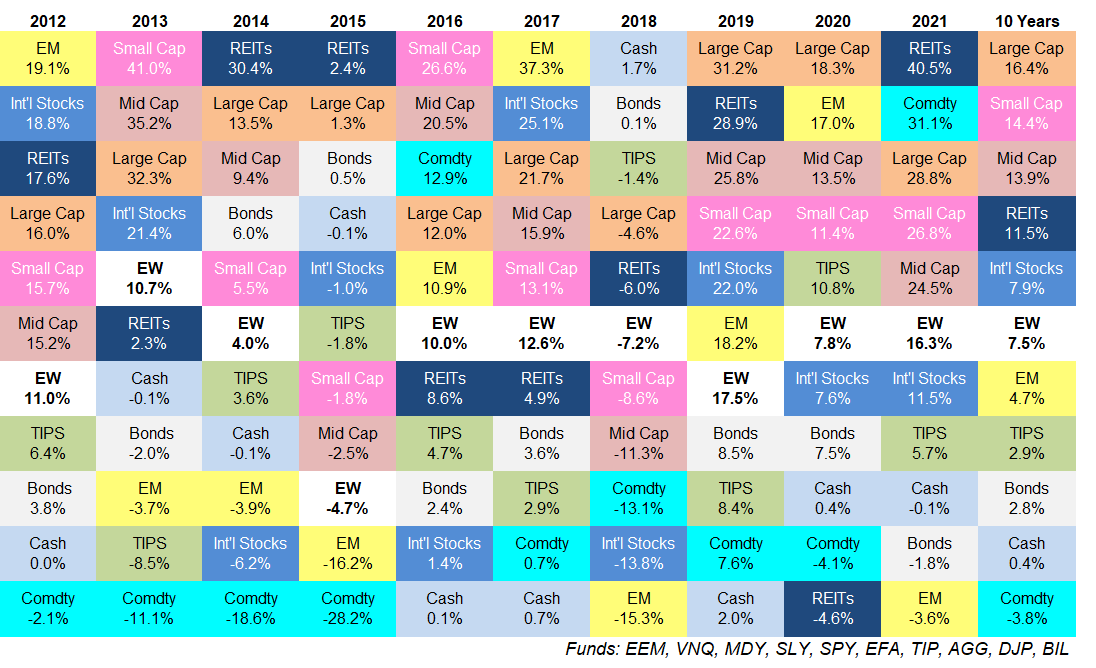Inspired by Jason Zweig’s cool idea, I wrote myself a letter for when my portfolio crashes…

Jesse – you knew what you were getting into. You knew this could happen, and it’s ok that it did happen.
Your goals are big and your timeline is long. That’s why you signed up for a risk-heavy portfolio.
60% of your assets are in the stock market and you knew the stock market could get cut in half. It’s dropped like that before, and it surely will again.
You knew the recent market felt…frothy, especially after the COVID-related stimulus. But you also knew that selling your stock position would have been short-sighted. Rather than sell, you’ve been rebalancing every six months. That is, selling overpriced assets (US large stocks) and buying underpriced assets (everything else). It’s a smart thing to do.
You knew cryptocurrency could be a giant bubble. But you also convinced yourself that blockchain technology is powerful. You balanced these opposing views by following John Bogle’s famous advice to limit your “play money” to less than 5% of your portfolio. And you split that 5% between Bitcoin and Ethereum, which have been considered the two powerhouse cryptocurrencies. If you’re going to drink moonshine, drink the “good” stuff. But take a small sip.

You knew that bonds were a tough place to park your money. Yields are so low. That’s why your allocation varied between 10% and 15%. But you also knew that all asset classes ebb and flow over years and decades (see chart above). Your bonds weren’t there to make you rich. They provided diversification and a pool from which to rebalance.
You designed this portfolio with intention. And this outcome was always one potential outcome of that design.
So the market crashed and you feel bad. Don’t suffer the malady of “results-oriented thinking.” Told you so isn’t justified.
You did your research, followed (mostly) best practices, and executed a plan you believed in. You made a smart bet with good odds. The dice didn’t roll in your favor. Does that mean it was a dumb bet? No.
As Annie Duke writes in Thinking in Bets:
Thinking in bets starts with recognizing that there are exactly two things that determine how our lives turn out: the quality of our decisions and luck. Learning to recognize the difference between the two is what thinking in bets is all about.
The “right” choice led to a “bad” outcome. So this next part is painful. You’ve got the make the “right” choice again, even knowing it didn’t work out the first time.
That “right” next choice is to continue learning, implement lessons learned, continue rebalancing your portfolio, and (most likely) continue holding the same asset classes as before.**
**One exception: If crypto does turn out to be completely fraudulent, you should just stick to more traditional asset classes.
In other words, stick to your guns (with a small allotment for adjustment).
Is that insanity? Are you suffering that trope of “insanity is repeating the same actions while hoping for a different outcome…”
I say no.
When the poker player goes all-in with a pair of aces, we don’t scold her for losing on an unlucky flop. We commend her for making the right decision. We recognize the role of bad luck.
This untimely crash is the same. It sucks. It doesn’t feel great. But go back and re-read Bogle, re-read Malkiel, re-read your foundational books. You played your hand well. This was always a potential outcome.
As insane as it might sound, you’ve got to stay the course.
Good luck, dude! I’m pulling for you (obviously!) 🙂
-Jesse
Thank you for reading! If you enjoyed this article, join 8000+ subscribers who read my 2-minute weekly email, where I send you links to the smartest financial content I find online every week.
-Jesse
Want to learn more about The Best Interest’s back story? Read here.
Looking for a great personal finance book, podcast, or other recommendation? Check out my favorites.
Was this post worth sharing? Click the buttons below to share!
Great letter to yourself.
With pandemics and wars it’s good to have something to refer to in case of market crash.
Thanks Tech!
Hi Jesse, I wrote a myself a letter in case of crash too, but I haven’t even opened it yet. Somehow, I’m not even worried. Stay the course indeed!
Such a fun exercise! I’d be curious what your letter says 🙂